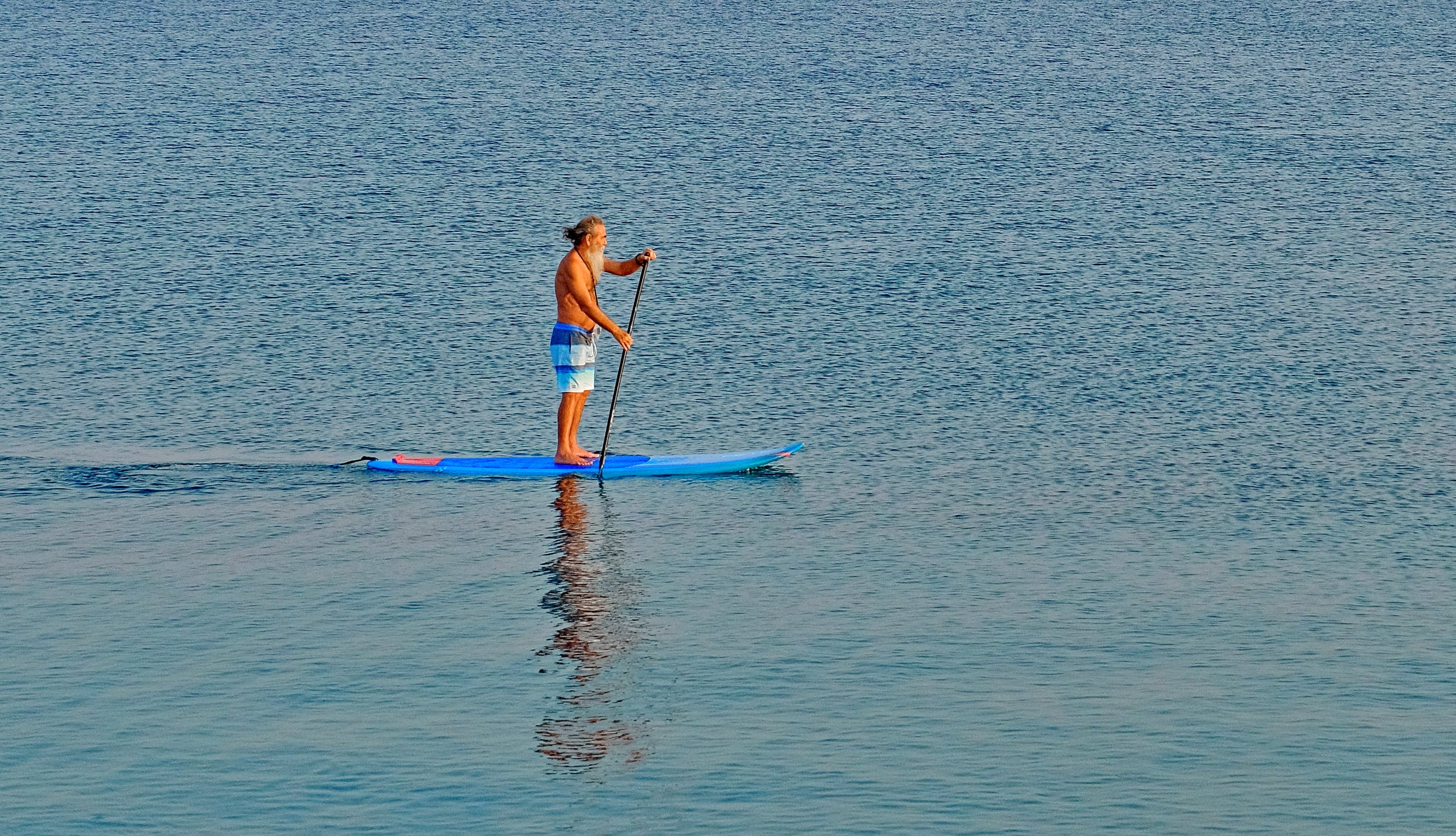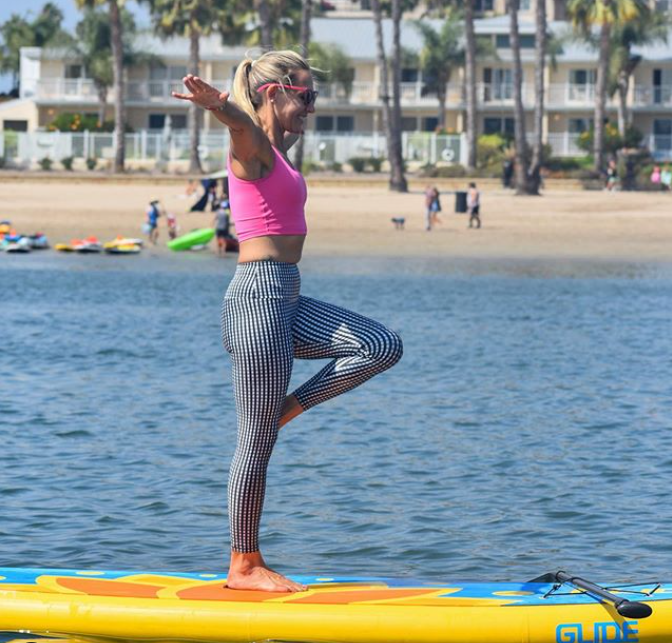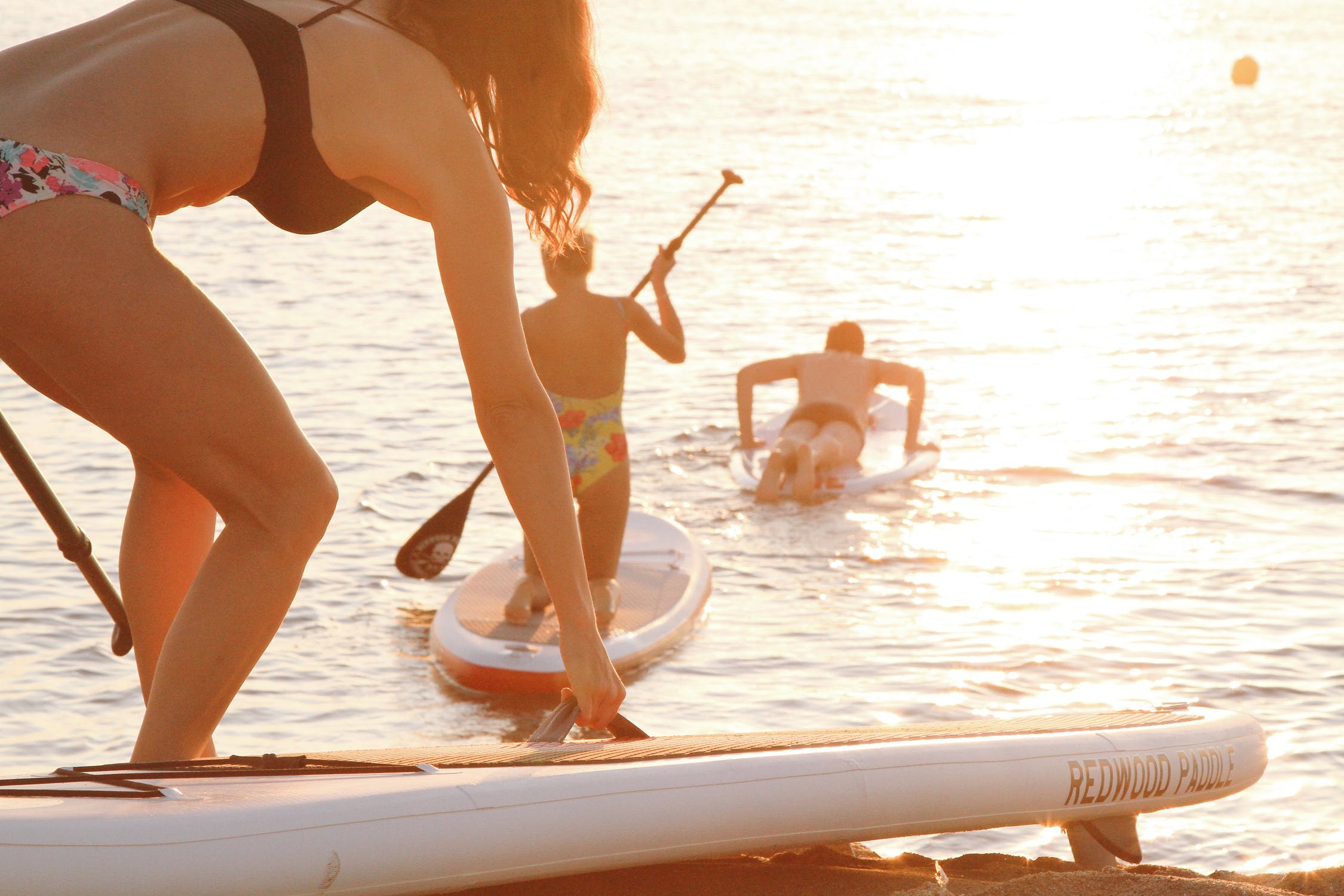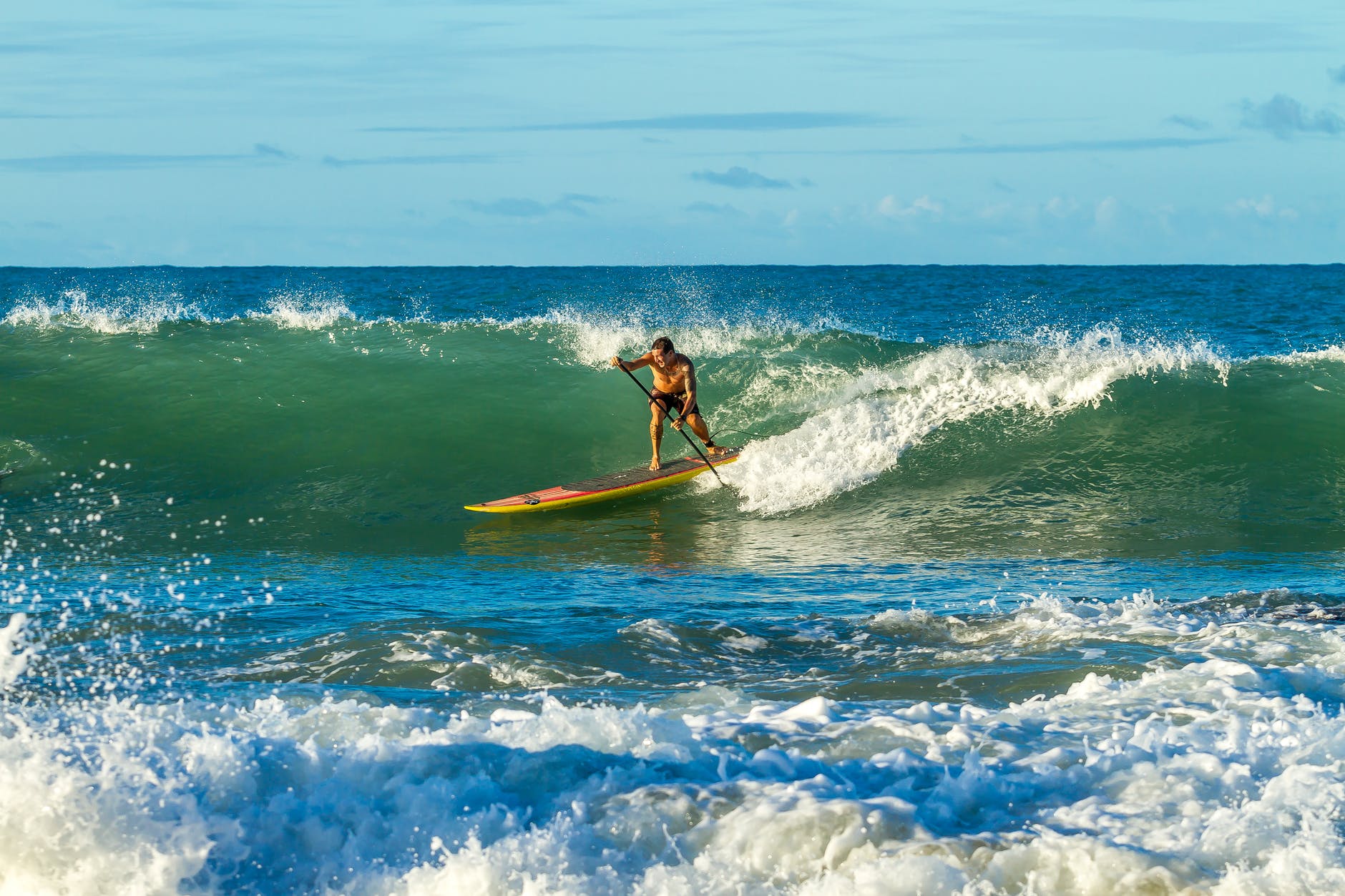A Beginners Guide to Learning How to Paddleboard

Stand Up Paddle Boarding or SUP is the ultimate water sport activity for beginners and is steadily rising in popularity. It is a fun, family-friendly means of exercise that is far easier to pick up than other types of board sport but can also be the perfect pre-cursor to a water sports holiday As a form of transport, it can take you to incredible locations that you’d never be able to access otherwise. The hidden coves that are too narrow for boats, the mysterious islands too far away to reach by swimming suddenly become accessible to those who travel by SUP boards. You’ll even get a full body work out from your adventures on the board. Your shoulders and arms drive you forward as your core and legs stabilise the deck.
Stand Up Paddle Boarding or SUP is the ultimate water sport activity for beginners and is steadily rising in popularity. It is a fun, family-friendly means of exercise that is far easier to pick up than other types of board sport but can also be the perfect pre-cursor to a water sports holiday As a form of transport, it can take you to incredible locations that you’d never be able to access otherwise. The hidden coves that are too narrow for boats, the mysterious islands too far away to reach by swimming suddenly become accessible to those who travel by SUP boards. You’ll even get a full body work out from your adventures on the board. Your shoulders and arms drive you forward as your core and legs stabilise the deck.
For any yoga enthusiasts, a SUP board is a chance to do something different with your routine. You can use your board as a floating base to practice some moves out to sea. As you steady your deck and activate your core, you’ll be working your stabilising muscles in a way you could never do on land.
Fitness, adventure, exploration, and fun. If an activity that combines the best aspects of water sports, yoga and activity holidays sounds good to you then discover our useful tips for learning how to paddleboard below.
Get the Right Equipment

In order to stay safe while paddle boarding, it is important to bring the correct equipment. SUP boarding, although lots of fun, can be dangerous if practiced irresponsibly. If you lose your board far from the shore or if the weather suddenly worsens, you could put yourself at serious risk of drowning. Basic equipment requirements are necessary: a life jacket or PID, a paddle leash and a stand-up oar need to be with you from the get-go. The paddle leash will keep you tethered to your board, a life jacket or personal inflatable device will keep you afloat in an emergency and your oar is the only thing keeping you from drifting off with the current. These items are the bare essentials for personal safety, but you may prefer to carry some other useful tools: a wetsuit for colder waters; a helmet for rockier coastline; a whistle for attracting attention in an emergency.
Pick the Right Board

There are a variety of paddleboards to choose from. Each type is tailored for a specific function. There are touring SUPs that are long and thin; designed primarily for travelling distances at speed. Surf SUPs are shorter, narrower and pointer; they’re ideal for catching the waves back to shore. For beginners, all round SUPs are a perfect middle ground between stability and responsiveness. They are a few centimetres higher than other types of board so are much more stable. If you’re looking to learn, a stable board is key. Yoga SUPs are very stable and very forgiving: they are wide, thick, and higher off the water so ideal as a base for stretching in incredible spots. However, you may find these larger boards require more exertion to move them on the water. Ultimately, it is important to pick a board that is not too advanced and feels comfortable.
Getting Out There
Before you grab your SUP board and sprint for the surf, it is important to plan your excursion and choose what type of sea and coastline you would like to explore. Many people use paddle boarding to get to spots where you can do other activities: cliff jumping, snorkelling, and fishing to name a few. Prior planning then is key if you want to have a good trip and facilitate other activities. Have a destination in mind before heading out and make sure you have checked tide times, told people where you’re going, what route you’re taking and when to expect you back. It is usually best to go out with a group or as part of a tour.
Getting Up

Push your board out into open water that is deep enough for the fin on the underside of the board. Begin with your knees on the deck. Paddle for a few strokes to build some momentum. Slowly raise up one foot at a time, making sure to keep your centre of gravity in the middle of the board. Once you’re on two feet, bend your knees slightly to aid with stability. Keep paddling to remain stable and continue going forward. As you paddle, try to make your strokes strong and assertive. It may seem counter intuitive but as your board moves quicker, it will become more stable and less likely to fly out from underneath you.
Strokes

When it comes to paddling, try to remember to keep your bottom arm relatively still. Your top arm (the one holding the handle of the paddle) should be the drive of the oar as it submerges into the water. Rotate your shoulder and use your back as you steadily drive the oar into the water. Aim to have your paddle enter the water about 50cm in front of your feet. Try to pull it out approximately 50cm behind your heels. The longer your strokes, the more in control of the board you’ll feel.
A useful tip is to think about pulling yourself past the paddle and not pulling your paddle towards you.
- For travelling forward, alternate your strokes on either side of the board i.e. two strokes on the port side, two strokes on the starboard side.
- For turning left simply paddle on the starboard side of the board
- For turning right just paddle more on the left-hand side of the board
Have Fun but Safety First!
Paddle boarding is a great form of exercise and lots of fun – the perfect beginner’s water activity that is suitable for all ages. Maximise the fun factor by ensuring you’ve taken all the recommended safety precautions beforehand. All that’s left after that is to have fun, be adventurous (in a safe way!) and remember that it’s only a very short height to fall in from!
Talk to one of our Travel Specialists on or contact us here to discuss tailor-making your perfect wellness holiday with paddleboarding.

